If you have an air conditioning unit, then you will know how important it is to keep it in the best shape and condition possible. Otherwise, you could be left with your AC blowing hot air into your home on a scorching hot day, and so much humidity, your hair would make The Supremes jealous.
There is so much conflicting advice and information out there about the best care and maintenance of AC units, that it can be hard to decipher what to do for the best.
Should you cover your AC unit in the summer? Is it better to cover your AC unit in the winter? There is a lot of confusion as to which is best, so we are here to help filter out some of that information and give the best advice surrounding your AC unit.
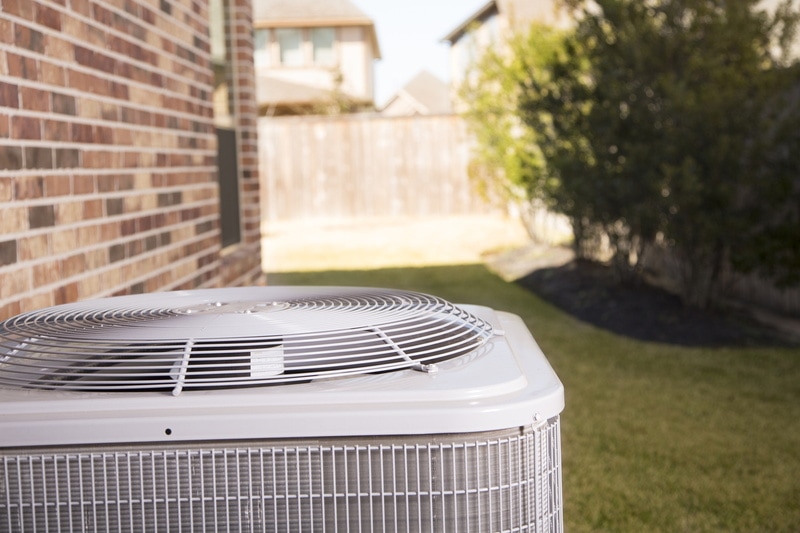
Should I Cover My AC Unit in the Summer?
You may be wondering whether it is best to cover your AC unit during the summer, but the reality to this question is that you should never really cover your AC unit. This is because AC units are specifically designed to be outdoors, and are equipped to work against many climates and conditions, regardless of the weather.
The main components of an AC unit are sealed from moisture and are manufactured in a way that repels it. Not only this, AC covers can promote improper ventilation, cause moisture and even grow mold.
While an AC cover may sound like a good idea, there really is no reason to cover it during the summer. However, some people do like to cover their AC units during harsh weather conditions, or during the fall.
Pros of Covering an AC Unit
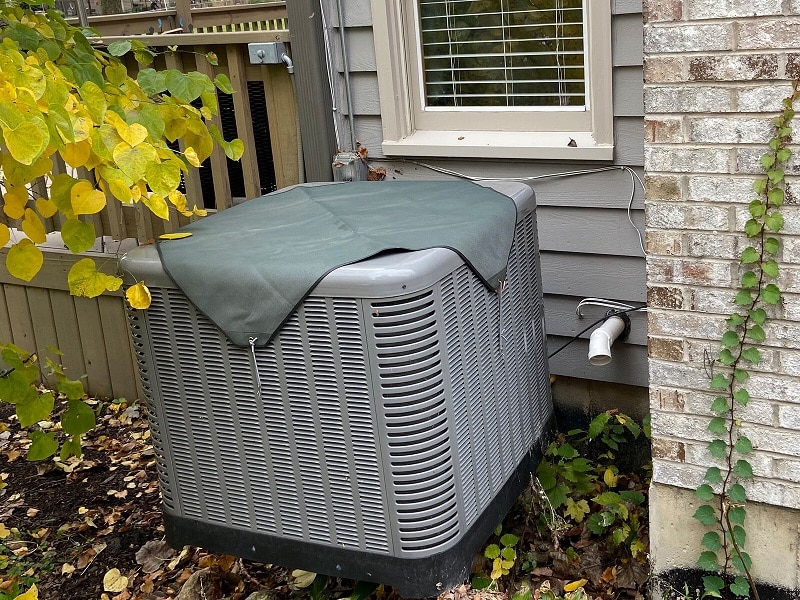
There are some pros to covering your AC unit, to help you maintain and care for the unit, and make it last longer. The main benefit of covering an AC unit is that it prevents any dirt, sticks, or debris from entering the unit.
This is why it is best to cover the AC unit during the fall, as many twigs, branches, leaves, and other yard waste can fall into the unit, and cause a blockage or reduce the effectiveness of your AC unit. In addition, covering your AC unit can help keep the coils cleaner to boost the efficiency of the AC, ready for the next cooling season.
Finally, another pro of covering the AC unit is that it stops water from resting on the coils and freezing, which could cause some extensive damage. This is why many AC owners swear by covering their units during harsh weather conditions such as extreme snow or ice, as the water can get trapped inside and ruin the components.
If you live in an area where this could be an issue, then it is probably best to cover the AC in those circumstances.
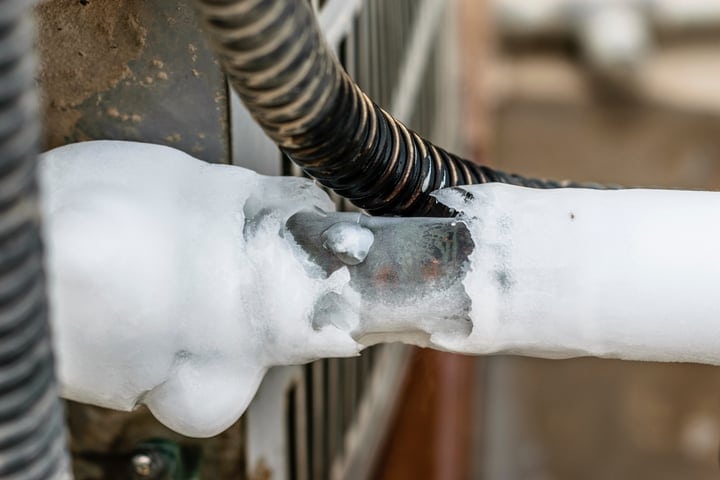
Problems Caused By Covering an AC Unit
Although many people argue that you should cover your AC unit, there are many reasons why you should not cover your AC unit. One of the main reasons for this is that moisture can become easily trapped in the system, which would create high humidity, and can lead to rust and corrosion of the AC unit, damaging it in the long run.
Additionally, the AC unit is designed to be in the open air, and covering it can block the airflow which can also lead to mold growing in the components and decreasing the efficiency of your AC unit.
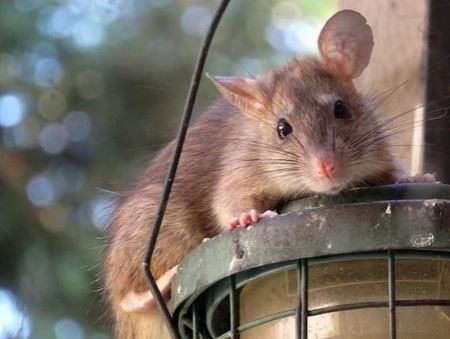
If you do cover your AC unit, it can become a bit of a hotspot for rodents and animals to seek shelter from rough weather and wintery conditions.
Animals such as this will then inhabit your covered AC unit, which can lead to them chewing up the electrical wires, or the refrigerant lines, which can cause so many problems with your system.
In addition to these, many AC unit manufacturers do not actually recommend covering the AC unit at all, as most AC units are built to withstand outdoor weather, and can operate all year round without covering them.
Other Ways To Take Care of an AC Unit During The Summer
The best way to take care of your AC unit during the summer and the rest of the year is to ensure that it is running correctly and efficiently at all times. This means protecting it from the elements and maintaining the system.
To do so, you will want to employ regular cleaning, parts lubrication, and reduce corrosion to ensure that your AC lasts. You will also want to shade your AC unit in very warm weather or bright sunny days, as this can encourage them to run more, which can lead to overheating.
To avoid this, you can consider landscaping the shade in your garden to cover your unit, but always ensure there is proper ventilation for the AC.
Landscaping for the AC can include planting shrubs or shading for the unit, to protect it from direct sunlight.
With trees and bushes around your AC, protecting from the sun, the cooler the air will be and the better your unit will run. Just make sure there is not too much debris falling into the unit from the trees.
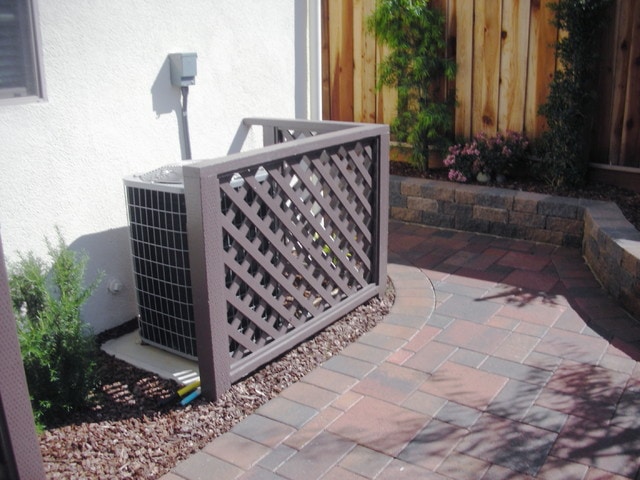
Summary
In most cases, many AC units are specifically designed to be outside, and so it is not so much of a problem to leave them to fend for themselves against the elements.
That being said, it can be very beneficial to cover your AC unit after summer, as you may want to protect your AC unit from falling leaves and debris during the autumn and fall months before winter comes.
People Also Ask
Sometimes, you can have many questions about your appliances and the general care and upkeep of your AC unit. Luckily, we have a frequently asked question section, here for you, to answer all of your questions.
You may be wondering if the outside temperatures can affect your AC’s performance and if this can cause the AC to overheat. This can actually be true.
The outside temperature can greatly affect your AC, as when the temperature is hotter, your AC will have to operate in a different way, and the compressor will need to do more work to create cool air. This means that the hotter the temperature, the harder the AC will work, which can lead to overheating.
In addition, hot days are often more humid, which can also make your AC work twice as hard to produce cool air. This is because the AC has to remove the extra humidity from the damp, clammy air, and your AC may not always have the cooling capacity to handle the extra work.
You should never attempt to run an air conditioner with its cover on, and air conditioners need to exchange heat and condensation in order to work properly. Without the proper airflow, it needs when the cover is on, the appliance may not work, or the components can become damaged or compromised.
The main reason you may want to cover your unit is when there is a risk of dirt, or debris falling into your AC unit. Therefore, if there is extreme weather such as snow, ice, moisture, or dirt, then you may want to consider covering your unit to prevent it from getting damaged, or from items becoming lodged in the unit.
That being said, your AC unit is designed to withstand outdoor elements, so you do not have to cover it in most cases. We recommend that you cover your AC in very extreme weather conditions such as hail storms or blizzards to keep it in the best condition possible.
Your air conditioning system is designed to cool the air in your home, and in short, no it does not take in outside air. To remove heat from the air in your house, the AC will pump it outside via a heat pump, with the compressor, which works to suck warm air out of the home, with the help of a refrigerant.
This process starts with the heat from inside the house, being absorbed by the refrigerant, then the heat is transferred outside the house, ready to be released into outdoor air. The refrigerant then gets cold and distributes this inside the house by other components within the AC system.
